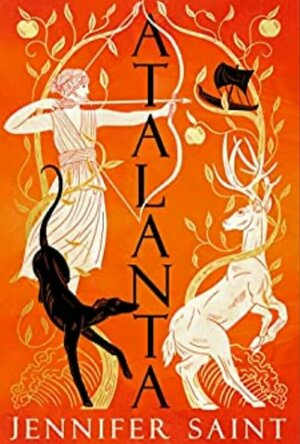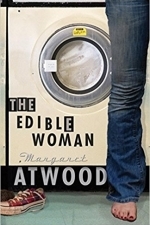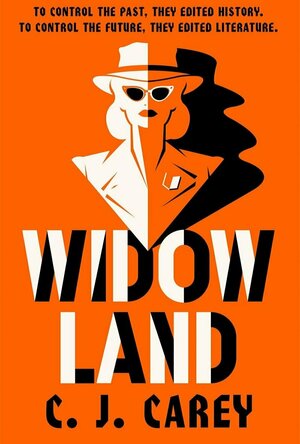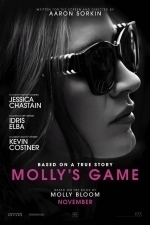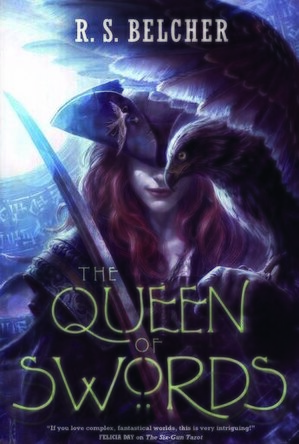Search
It looks as though my Greek mythology bender is still going strong - and it’s not difficult when there are fabulous stories like Atalanta being retold.
And what an amazing heroine Atalanta is - the only woman amongst the Argonauts on their quest for the Golden Fleece, she can run faster than the men, beat the best at wrestling, shoot arrows more accurately and hunt wild animals. All activities completely unexpected for women of the time. But Atalanta was raised by a bear from when she was abandoned as an infant, and then nurtured by Artemis and her nymphs in Artemis’ own forest.
When Atalanta leaves the safety of Artemis’ forest to go on her adventures, Artemis warns her that she must remain a virgin - if she doesn’t and she consequently marries, it will be her undoing.
So you just know what’s going to happen!
I loved this book, I loved Atalanta, I love thatGreek mythology is having something of a renaissance in the last few years (but has it ever not been popular in one way or another?), and I love these Retellings where the women are front and centre.
This is just perfect - more please!!
And what an amazing heroine Atalanta is - the only woman amongst the Argonauts on their quest for the Golden Fleece, she can run faster than the men, beat the best at wrestling, shoot arrows more accurately and hunt wild animals. All activities completely unexpected for women of the time. But Atalanta was raised by a bear from when she was abandoned as an infant, and then nurtured by Artemis and her nymphs in Artemis’ own forest.
When Atalanta leaves the safety of Artemis’ forest to go on her adventures, Artemis warns her that she must remain a virgin - if she doesn’t and she consequently marries, it will be her undoing.
So you just know what’s going to happen!
I loved this book, I loved Atalanta, I love thatGreek mythology is having something of a renaissance in the last few years (but has it ever not been popular in one way or another?), and I love these Retellings where the women are front and centre.
This is just perfect - more please!!
Jamie (131 KP) rated The Edible Woman in Books
May 24, 2017
An honest exploration of the roles of women, marriage, and entering adulthood
Marian is an average college-educated woman who lives with a roommate in a decent apartment, works for a survey company, is moderately good looking, and has a handsome fiancé who is on his way to being a big shot lawyer. It sounds like life altogether is going pretty well for Marian. Yet for some reason she feels empty, why?
The Edible Woman explores the themes of losing a sense of self with maturity. At work she is pushed around, her roommate Ainsley is inconsiderate, the landlady is judgmental, and her boyfriend Peter is self centered and makes snide comments at Marian’s expense, acting like he can barely tolerate her. With each encounter Marian puts aside her pride for the sake of avoiding conflict. Marian expresses her problems through eating, or the lack thereof, hinting at a potential eating disorder. Just as she feels inhibited in life, she suddenly feels inhibited with the kinds of food that she can eat.
As the story continues she begins to dread marriage and question the direction her life is going—becoming just as listless as her friend and former classmate Clara, who after marriage and three pregnancies just seems beaten down. Marian’s fiancé Peter is the stereotypical perfect bachelor: a man’s man that looks down on women and views marriage as a ball and chain. Peter pushes Marian around in order to mold her into a subservient woman. There is no longer any room for her thoughts, her feelings, or her desires from under his shadow.
But what about work? What are women’s roles in society and the work force? Throughout the story there are several women including Marian with college educations, yet none of them really have a stable career. Women are expected to be wives and mothers, there’s simply no time for an education or a job. In this case, their educations are ultimately viewed as their downfall due to the crushing reality of how little opportunity they would have. This was the very sad truth at the time the book was written and thankfully is not exactly the case now in most parts of the world.
Atwood tackles a large number of social issues throughout the book that I think would be important for any young woman. Adulthood, relationships, marriage, the choice between work and education versus starting a family, and lastly feminism—both good and bad. (Hint: Ainsely is a perfect example of a bad feminist.)
There are certain elements of the book that are becoming quite dated. Namely the typewriters, the social expectation that all women can be are housewives, and the limited ways that women can dress; These things might make it difficult for young women to look past and relate to the main character. Despite this the book is still incredibly relevant in the message that it brings about maintaining one’s individuality. I absolutely love this book and found a lot of my former self in it’s pages.
The Edible Woman explores the themes of losing a sense of self with maturity. At work she is pushed around, her roommate Ainsley is inconsiderate, the landlady is judgmental, and her boyfriend Peter is self centered and makes snide comments at Marian’s expense, acting like he can barely tolerate her. With each encounter Marian puts aside her pride for the sake of avoiding conflict. Marian expresses her problems through eating, or the lack thereof, hinting at a potential eating disorder. Just as she feels inhibited in life, she suddenly feels inhibited with the kinds of food that she can eat.
As the story continues she begins to dread marriage and question the direction her life is going—becoming just as listless as her friend and former classmate Clara, who after marriage and three pregnancies just seems beaten down. Marian’s fiancé Peter is the stereotypical perfect bachelor: a man’s man that looks down on women and views marriage as a ball and chain. Peter pushes Marian around in order to mold her into a subservient woman. There is no longer any room for her thoughts, her feelings, or her desires from under his shadow.
But what about work? What are women’s roles in society and the work force? Throughout the story there are several women including Marian with college educations, yet none of them really have a stable career. Women are expected to be wives and mothers, there’s simply no time for an education or a job. In this case, their educations are ultimately viewed as their downfall due to the crushing reality of how little opportunity they would have. This was the very sad truth at the time the book was written and thankfully is not exactly the case now in most parts of the world.
Atwood tackles a large number of social issues throughout the book that I think would be important for any young woman. Adulthood, relationships, marriage, the choice between work and education versus starting a family, and lastly feminism—both good and bad. (Hint: Ainsely is a perfect example of a bad feminist.)
There are certain elements of the book that are becoming quite dated. Namely the typewriters, the social expectation that all women can be are housewives, and the limited ways that women can dress; These things might make it difficult for young women to look past and relate to the main character. Despite this the book is still incredibly relevant in the message that it brings about maintaining one’s individuality. I absolutely love this book and found a lot of my former self in it’s pages.
Widowland is a really atmospheric thriller, set in an alternate timeline - one where the German National Socialists and the British reach a compromise in 1940 and become the Grand Alliance. This alliance reads more like occupation though. Britain doesn’t have it’s own government, all laws come from Germany, and Britain is ruled by a German, the Protector, Alfred Rosenberg.
Even though there’s a huge shortage of young men (they’ve been ‘shipped off’ to the rest of occupied Europe to ‘work’) and women greatly outnumber men, women are divided into categories, or castes. These depend on their age, heritage, reproductive status and physical characteristics, and each category is named after a significant woman in Hitlers life. Rose is a Geli, one of the elite. Young, beautiful, and most importantly, fertile.
I thoroughly enjoyed this and read it far too quickly. It had a black and white, 1950’s movie atmosphere about it, and I could easily picture the people and scenes in my head. It brought to mind The Man in the High Castle with regards to Occupation, and 1984 with regards to feeling as though you’re constantly watched - as well as the people being told how to react, think and live. This was especially evident in Rose’s job: she rewrites classics so that they’re in line with the regimes ideals: so no independent, strong females, and all the male leads are changed to Sturmbannführer (at least!).
The drudgery of everyday life made me think of how I envisaged life in the GDR - as well as only allowing state sanctioned literature, there was only one radio channel in Grand Alliance Britain, with some brave people listening to illegal foreign radio stations, knowing that this could result in extreme punishment.
When Rose goes to Widowland near Oxford (there are a few throughout the country) to find the source of a potential rebellion, she’s shocked to see older women living in abject poverty, only permitted to eat a subsistence diet and work menial jobs. But these women are intelligent, and they’re not happy in their state regulated lives. Between her reading of classic books and meeting these women, Rose begins to see what’s wrong with the world she has been living in, and this dawning realisation is so well described. We see how reading ‘subversive’ classics seems to get under her skin, and how she realises that the treatment of women is wrong in this Grand Alliance.
I could go on and on. I raced through this book, and I loved the ending, which came far too quickly!
Many thanks to Quercus for my copy of this book through NetGalley.
Even though there’s a huge shortage of young men (they’ve been ‘shipped off’ to the rest of occupied Europe to ‘work’) and women greatly outnumber men, women are divided into categories, or castes. These depend on their age, heritage, reproductive status and physical characteristics, and each category is named after a significant woman in Hitlers life. Rose is a Geli, one of the elite. Young, beautiful, and most importantly, fertile.
I thoroughly enjoyed this and read it far too quickly. It had a black and white, 1950’s movie atmosphere about it, and I could easily picture the people and scenes in my head. It brought to mind The Man in the High Castle with regards to Occupation, and 1984 with regards to feeling as though you’re constantly watched - as well as the people being told how to react, think and live. This was especially evident in Rose’s job: she rewrites classics so that they’re in line with the regimes ideals: so no independent, strong females, and all the male leads are changed to Sturmbannführer (at least!).
The drudgery of everyday life made me think of how I envisaged life in the GDR - as well as only allowing state sanctioned literature, there was only one radio channel in Grand Alliance Britain, with some brave people listening to illegal foreign radio stations, knowing that this could result in extreme punishment.
When Rose goes to Widowland near Oxford (there are a few throughout the country) to find the source of a potential rebellion, she’s shocked to see older women living in abject poverty, only permitted to eat a subsistence diet and work menial jobs. But these women are intelligent, and they’re not happy in their state regulated lives. Between her reading of classic books and meeting these women, Rose begins to see what’s wrong with the world she has been living in, and this dawning realisation is so well described. We see how reading ‘subversive’ classics seems to get under her skin, and how she realises that the treatment of women is wrong in this Grand Alliance.
I could go on and on. I raced through this book, and I loved the ending, which came far too quickly!
Many thanks to Quercus for my copy of this book through NetGalley.
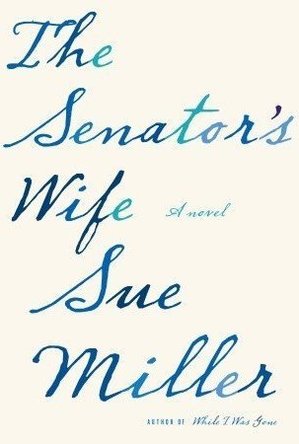
The Senator's Wife
Book
Once again Sue Miller takes us deep into the private lives of women with this mesmerizing portrait...
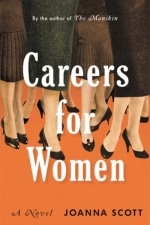
Careers For Women
Book
New York in the late 1950s. A city, and a world, on the cusp of change… Maggie Gleason is...
Fiction gender studies
Awix (3310 KP) rated Molly's Game (2017) in Movies
Mar 5, 2018 (Updated Mar 5, 2018)
Typically slick and snarky film from Aaron Sorkin, who does a good job of directing too. Over-achieving ex-skier goes to Los Angeles and winds up running big-money poker games; gets mixed up with the mob, legal troubles ensue.
One of those films benefiting from having a very topical theme about how women are (or were) overlooked in the entertainment industry, with a strong performance from Chastain. Feminist credentials are let down a bit by the prominence given to her father (Costner); also by the prominence given to Chastain's cleavage (one probably shouldn't say this, but: wow). In the end the film is a bit too keen on beatifying someone who was essentially a drug-addicted crook, at least for part of her career, but the story is engaging and well-told.
One of those films benefiting from having a very topical theme about how women are (or were) overlooked in the entertainment industry, with a strong performance from Chastain. Feminist credentials are let down a bit by the prominence given to her father (Costner); also by the prominence given to Chastain's cleavage (one probably shouldn't say this, but: wow). In the end the film is a bit too keen on beatifying someone who was essentially a drug-addicted crook, at least for part of her career, but the story is engaging and well-told.
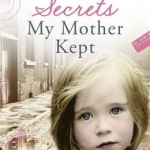
Secrets My Mother Kept: What If Everything You Knew About Yourself Was a Lie?
Book
Kath grew up on a vast council estate in the 1950s, the second youngest of ten children. The two...
Cori June (3033 KP) rated The Queen of Swords in Books
Jun 23, 2020
Maude and the Daughters of Lilith (1 more)
Characters
This book is full of strong women and great supporting characters. I hope this isn't the last book of the series but if it is I'm ok with it.
This follows most of the format of the previous two book in that it is multiple points of view. There is information about the Daughters of Lilith and a bit of time travel back and forth between Maude and Anne Bonny the Pirate Queen. It also goes out side of Golgotha and into the wide world, Maude's daughter, Constance, is taken from Golgotha by her grandfather and then kidnapped.
Maude is a mom who won't let anything or anyone get in the way of her finding her daughter and woe to any who get in her way
This follows most of the format of the previous two book in that it is multiple points of view. There is information about the Daughters of Lilith and a bit of time travel back and forth between Maude and Anne Bonny the Pirate Queen. It also goes out side of Golgotha and into the wide world, Maude's daughter, Constance, is taken from Golgotha by her grandfather and then kidnapped.
Maude is a mom who won't let anything or anyone get in the way of her finding her daughter and woe to any who get in her way
FI
Feminising Islam in Contemporary Indonesia: The Role of Progressive Women's Organisations
Book
This book addresses the question of how progressive Muslim women's organisations have contributed to...
